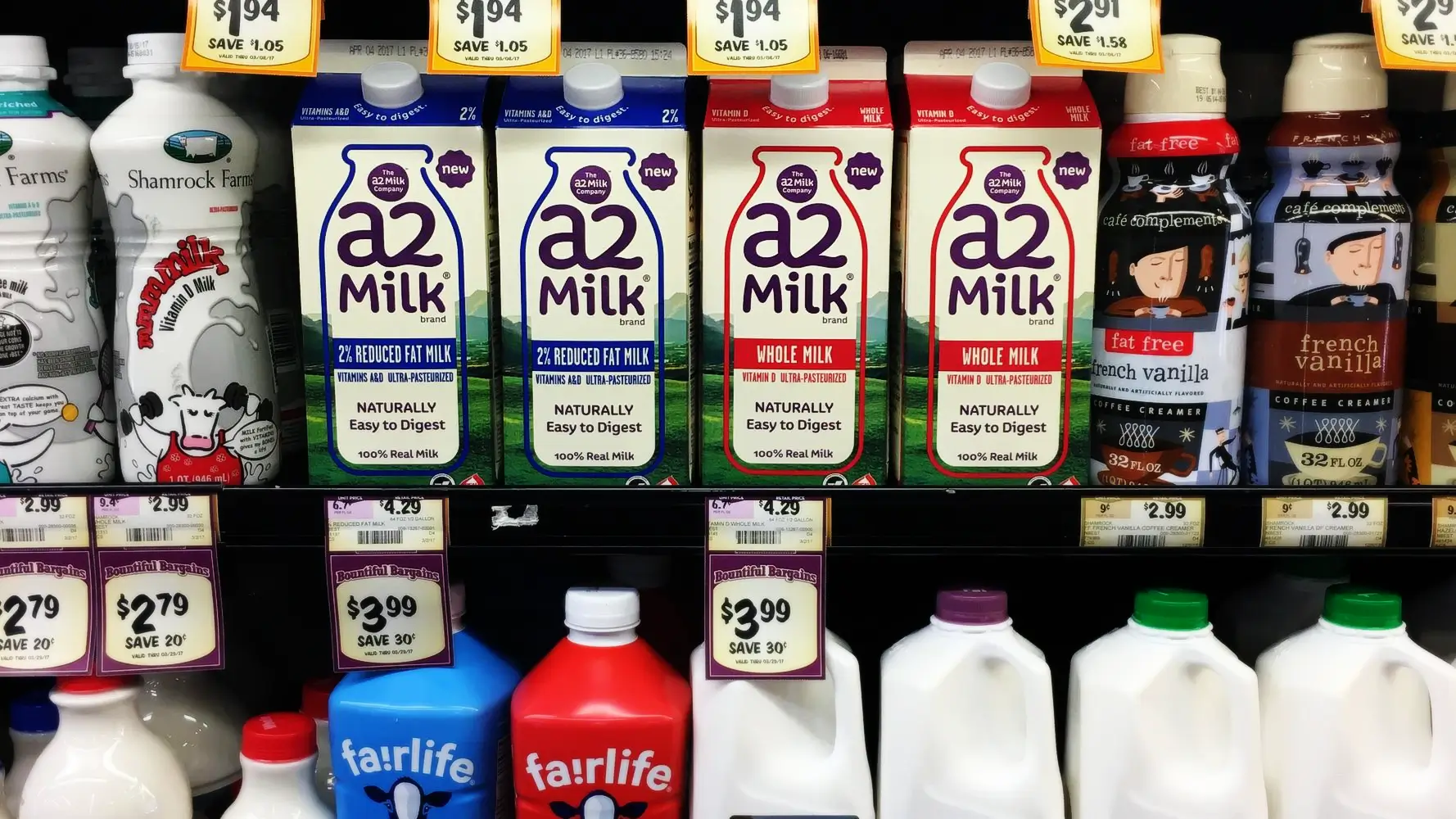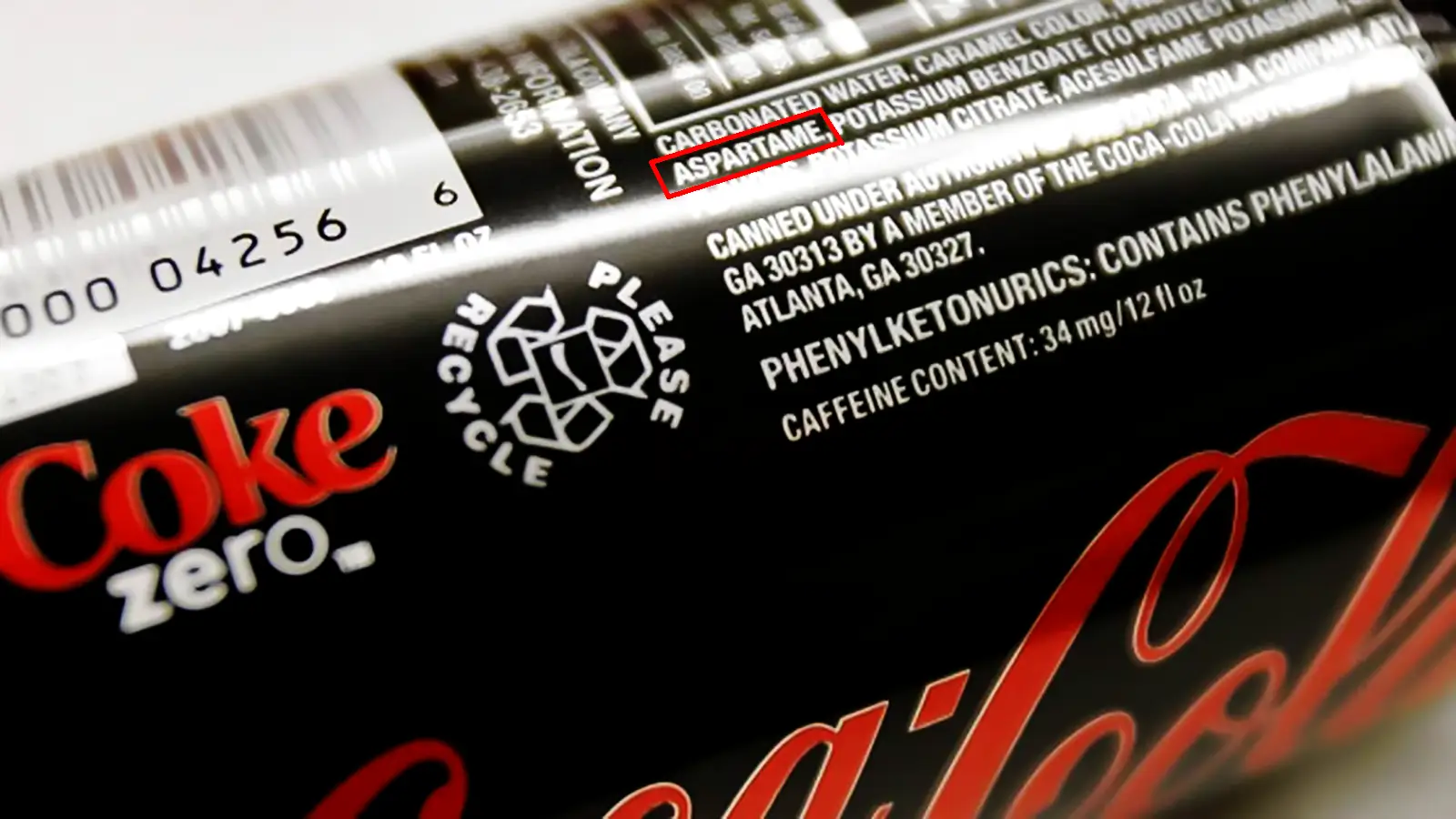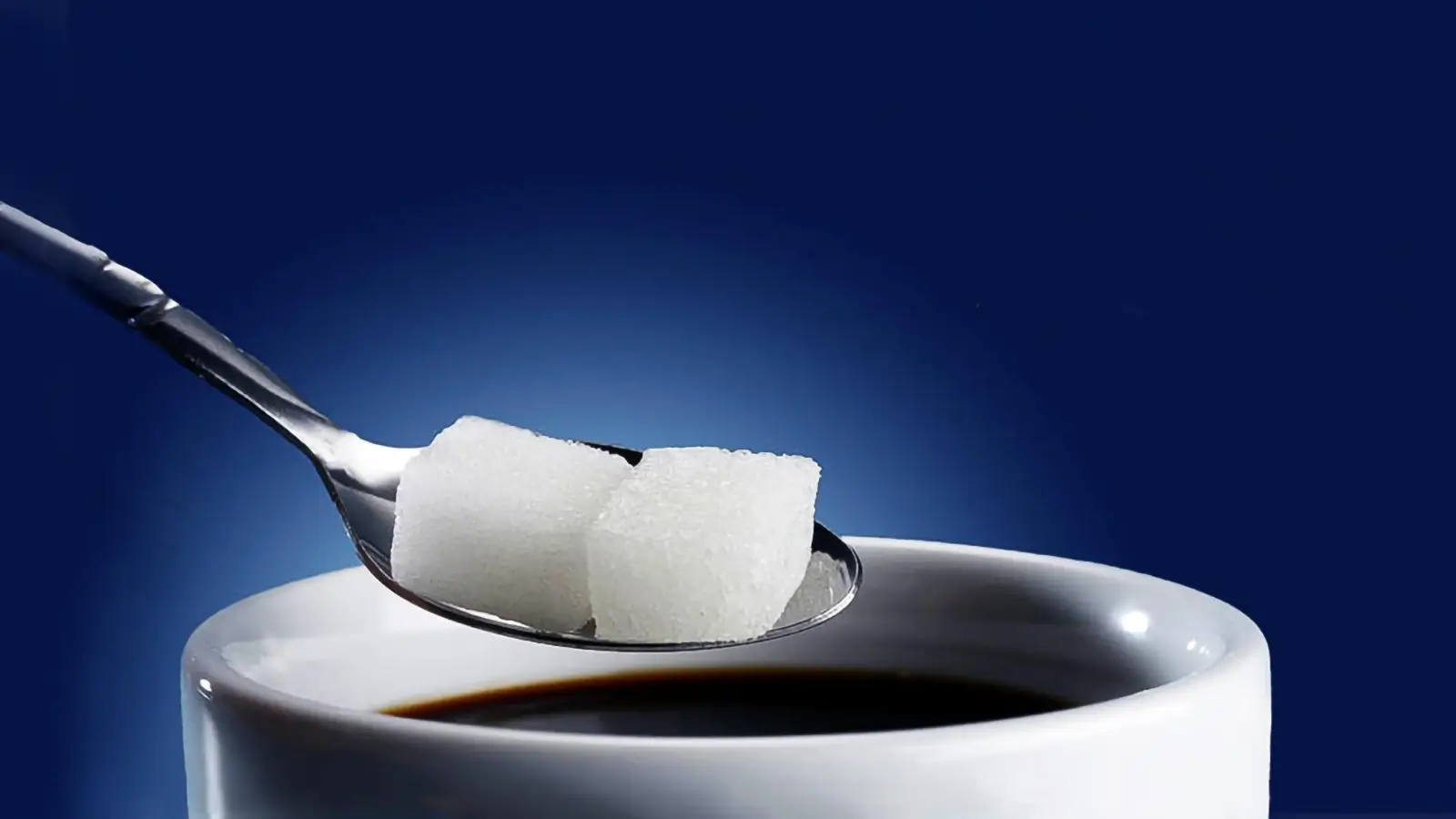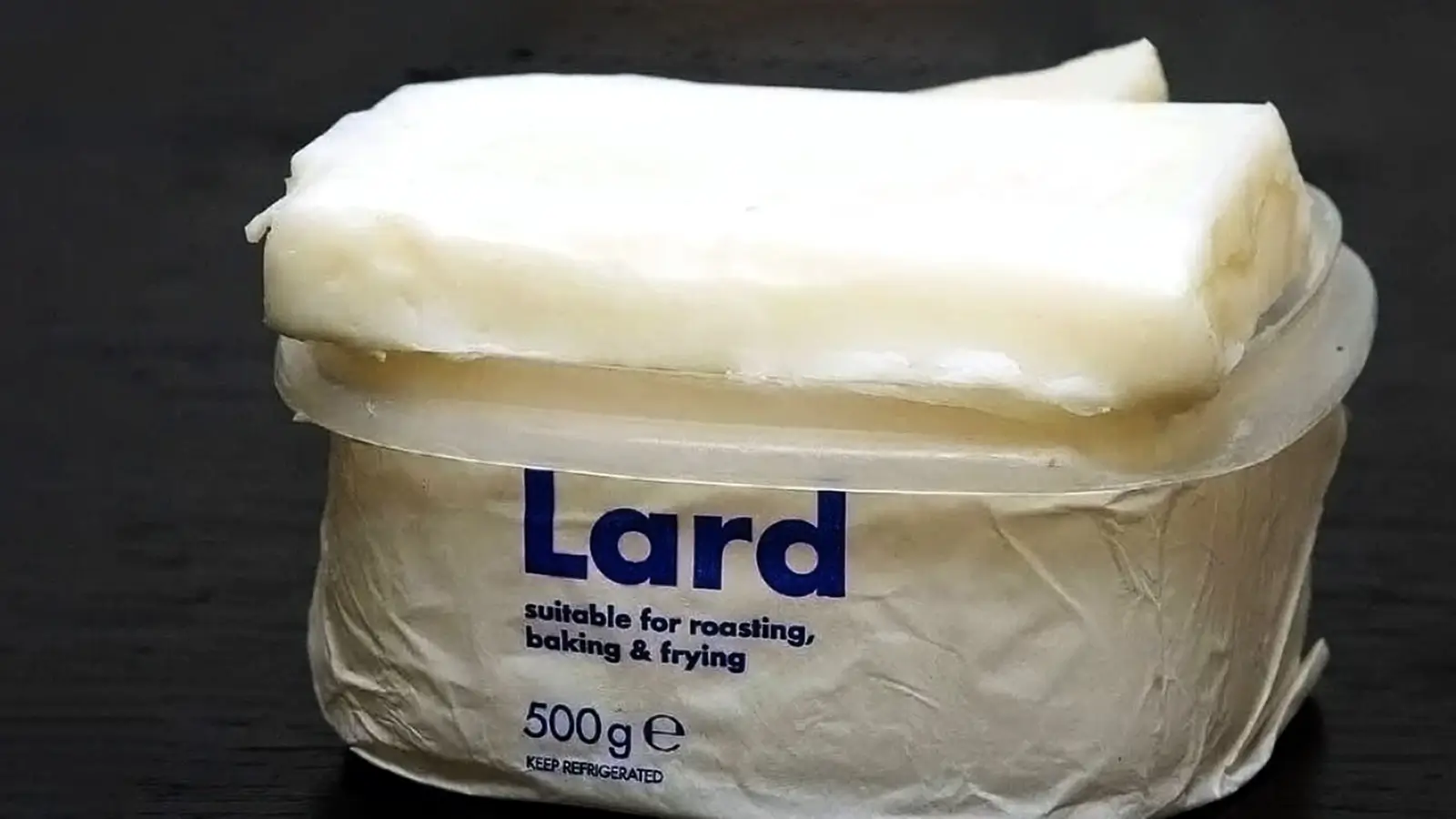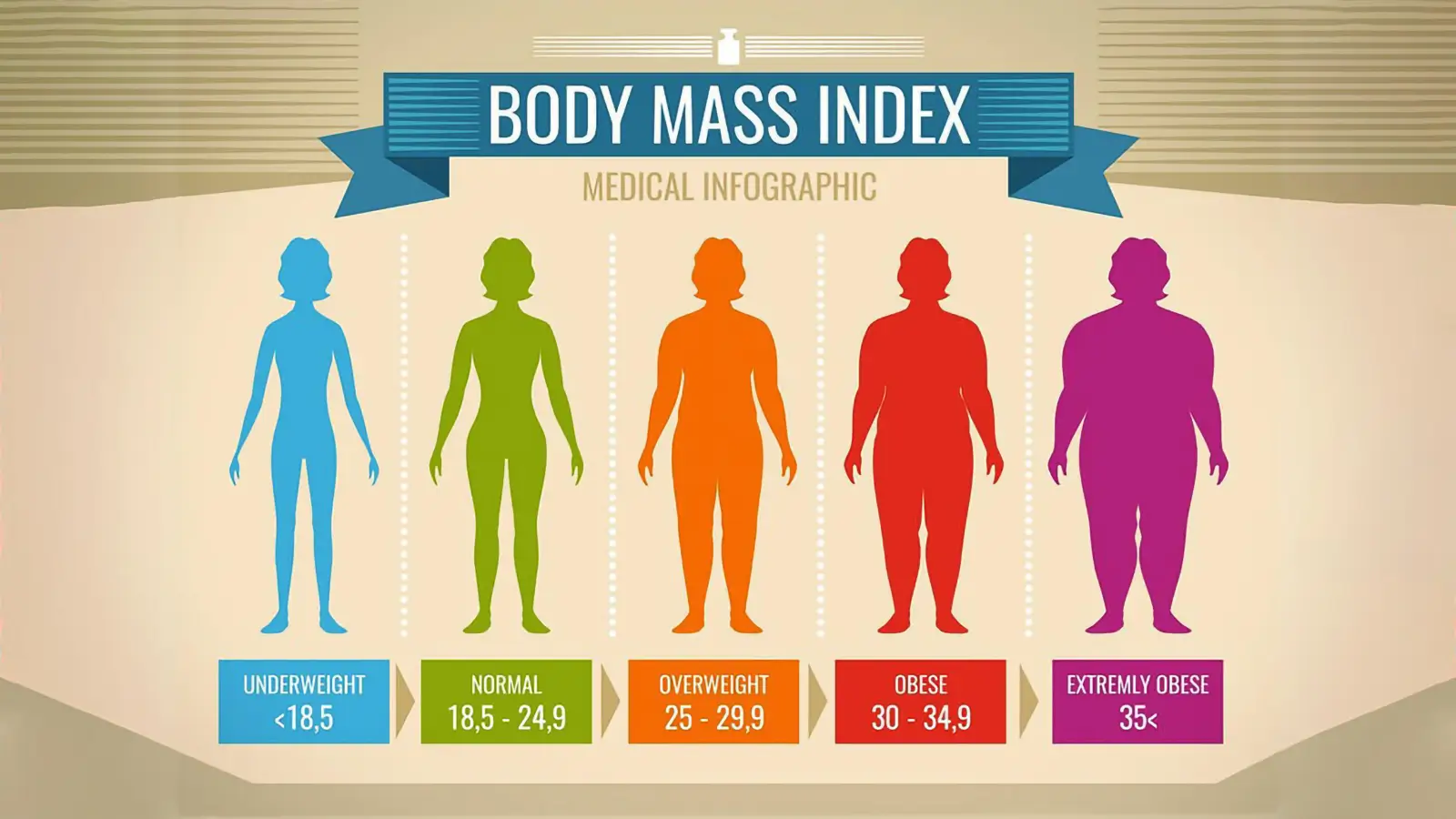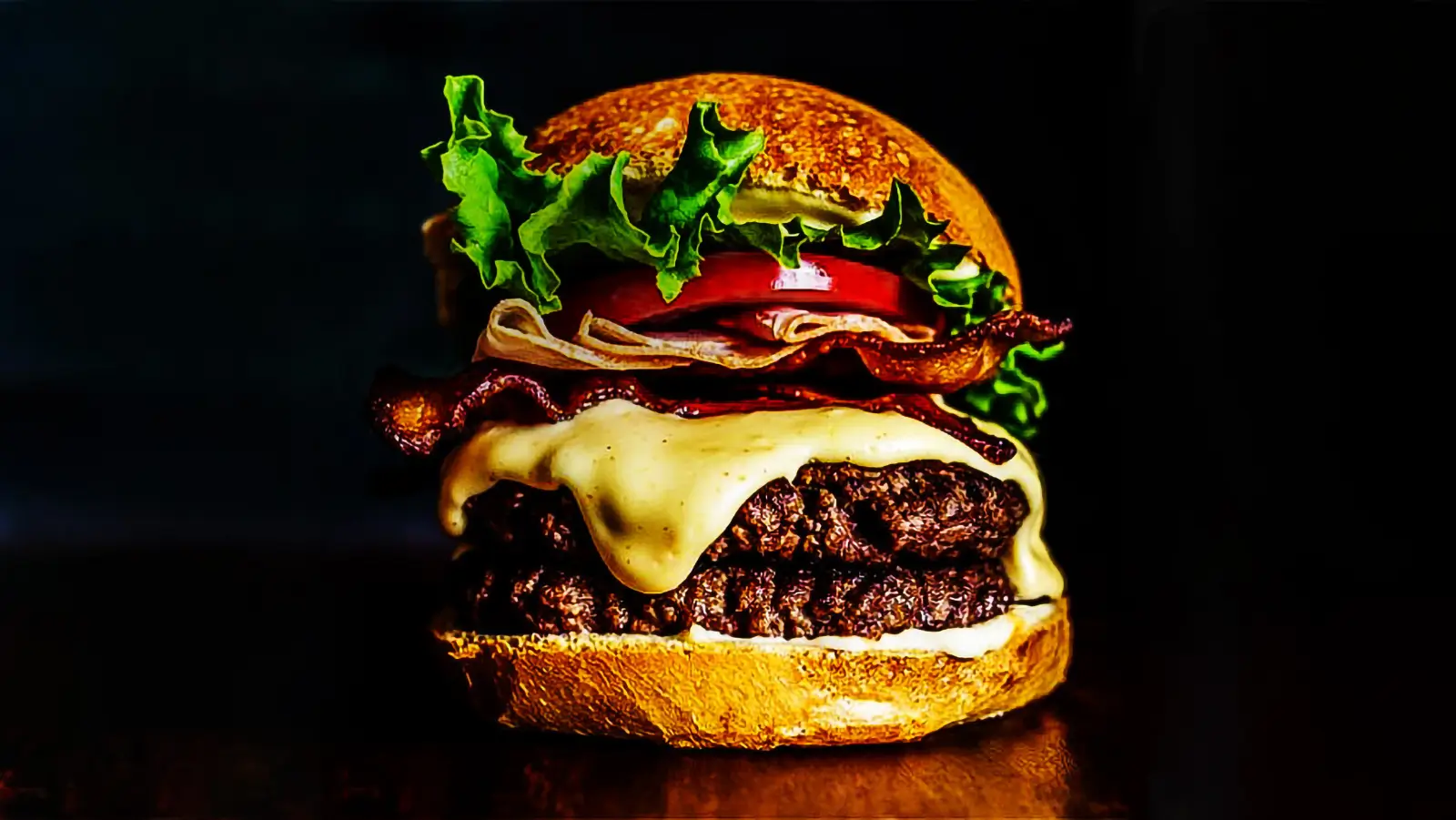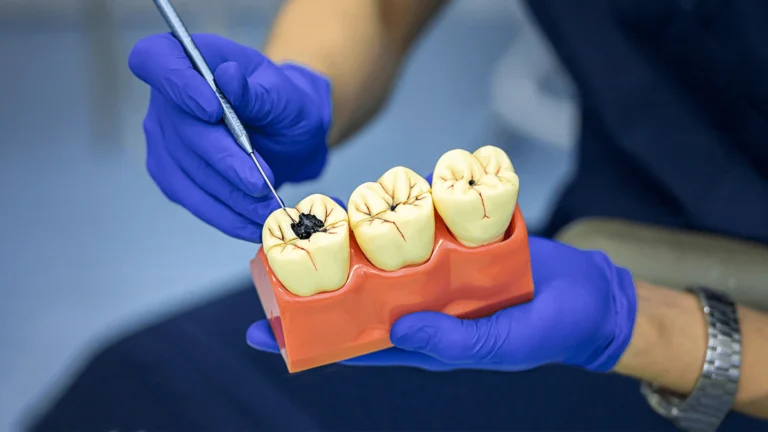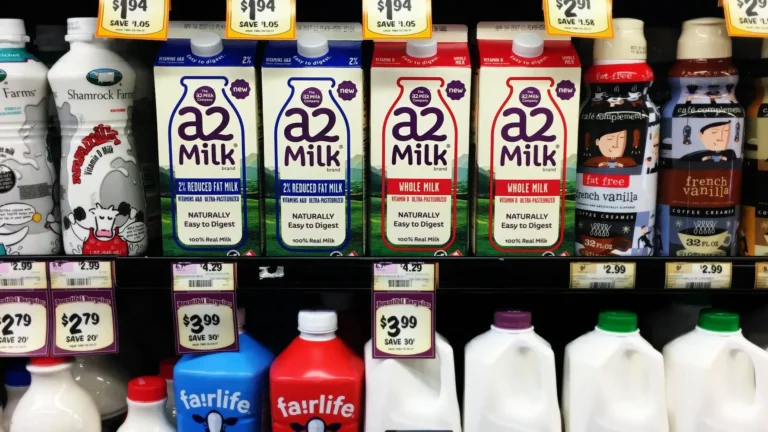Artificial sweeteners- Understanding the basics
Artificial sweeteners are unnatural synthetic chemicals and we will have to look into available science to understand the potential health effects that these chemicals might have.
Milos Pokimica
Written By: Milos Pokimica
Medically Reviewed by: Dr. Xiùying Wáng, M.D.
Updated May 28, 2023Skyrocketing levels of chronic diseases especially diabetes had pushed the industry to start to research healthy alternatives to sugar not just in the form of diabetes-friendly products but for the general population as well. Health conciseness and understanding in the broad public sense of what nutrition-deprived food or “junk food” is pushed the industry not just to find chemicals that are sweet but also to find chemicals that do not have any calories in them. For the industry, it would be a much easier job just to find sugar alternatives in the form of healthier sugar substitutes with calories but that is not what drives profit. Actually, we have seen a trend that is completely in reverse of just adding more and more fructose from corn production that is cheap to sodas and other products. The situation currently is that every individual that wants to optimize his diet even if he has diabetes, he will have to do it on his own after sifting through all of the conflicting information and science and propaganda. Problem is that we all know that a very small percentage of us will actually do it.
The situation today is that sugar is everywhere, especially fructose, and if you want something that is still sweet and has no calories you can use artificial sweeteners.
Artificial sweeteners are chemicals and are not from nature so we have to look into available science to understand the potential health or other effects that these chemicals might have.
The first problem is that they are not sugar so even if they are sweet that is just the taste. Sugar is more than just the taste. It is a dopamine-releasing neurochemical that affects every aspect of our behavior. For example, if you have hypoglycemia and you start to shake and you feel sick artificial sweeteners will do nothing for you.
Because of this artificial sweeteners do not have the desired effect on the same level in the brain if they are not excitotoxins at the same time. To truly replace sugar neuro effects we will have to use excitotoxins that are sweet.
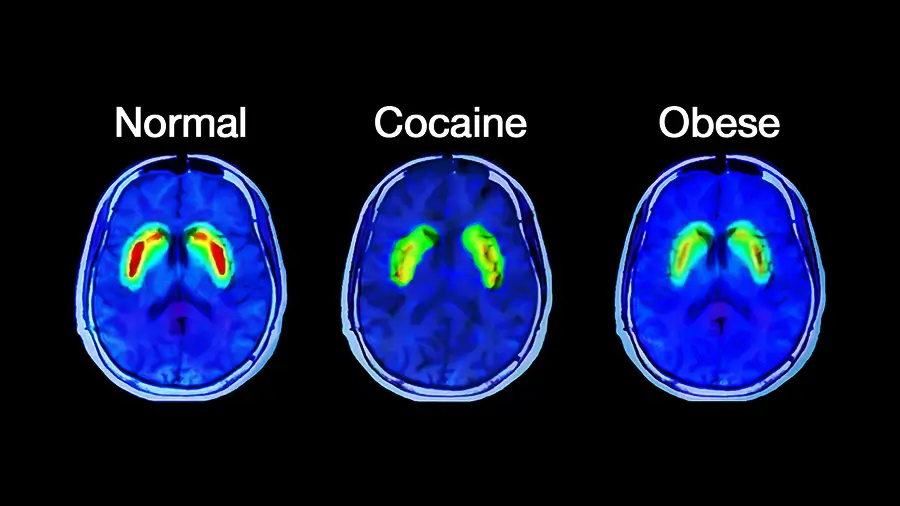
Stevia can make things sweet but will not have a dopamine effect on the brain like sugar and especially sugar-fat combination so usually it would not be satisfactory as chocolate or ice cream. It will still have a simulative effect but only for a short time.
The industry needs to combine sugar and fat or use excitotoxin chemicals to give you a full-blown satiety dopamine sensation. Sugar fat combination and especially refined sugar and refined fat combination do not exist in nature so our brain is not used to them. It is something known as supernormal stimuli. Artificial sweeteners need to be dopamine-releasing chemicals to simulate refined sugar completely.

That is the reason for example why Coca-Cola only uses aspartame (which is excitotoxin) in Coke Zero.
Artificial sugars are good for the industry in other ways. They can market the products as low or zero calories, healthy, diet, and so on but that is the opposite of what happens. The first thing that happens when our brain registers the sensation of sweetness in our mouth is the same thing that happened in millions of years of evolution, and that is to tell you to eat it and like it. The brain does not know that thing in our mouth is diet soda. It thinks it is some sweet fruit and it will boost your appetite and give you desire so that you can eat it fast and while you still can before some tiger comes along. Now there is another mechanism that will tell you to stop eating it before you overeat because if you overeat, you might not be able to run away from the tiger. Every time we eat there is a satiety mechanism that will tell us when we had enough.
With non-caloric artificial sweeteners, we are disconnected.
We have stimulation from the sweetness that goes to our brain but no appetite-suppressive effect from calories coming into our system. It will leave us wanting more. And because the stimulus is lower than a full-blown fat-sugar meal the sensation is only temporary. You might feel good drinking diet soda for example but as soon as you stop and sweet sensation signals stop your brain will detect hunger again.
Studies that were done usually have found that sweet taste, whether produced by sugar or artificial sweeteners, enhances human appetite.
This revved-up appetite will have led us to overeat even more than we would have without diet soda and end up gaining weight. There is a well-known fact in the industry that came from several large-scale prospective cohort studies that there is a positive correlation between artificial sweetener use and weight gain. While people often choose “diet” or “light” products to lose weight, research studies suggest that artificial sweeteners may actually contribute to weight gain.
The most common explanation that the industry likes to use for this counterintuitive finding is what’s called reverse causation.
People are not fat because they drink diet soda. They drink diet soda because they are fat. So diet soda had nothing to do with it. It is their overall diet that is bad. And I will agree with that, but as always there is more to it.
The San Antonio Heart Study, for example, examined 3,682 adults over a seven to eight-year period in the 1980s. When matched for initial body mass index (BMI), gender, ethnicity, and diet, drinkers of artificially sweetened beverages consistently had higher BMIs at the follow-up, with dose dependence on the amount of consumption. Adding artificially sweetened beverages just encouraged them to eat more. Similar observations have been reported in studies with children too.
In nutrition science, there is a psychological effect known as “overcompensation for expected caloric reduction.”
If you covertly replace someone’s soda for a diet one or some candy with a non-sugary one without the target knowing it, his or her caloric intake drops. But people who knowingly are consuming artificial sweeteners may end up eating more calories because of overcompensation that comes along later. One of the studies involved giving people an artificially sweetened cereal for breakfast, but only half were told (Mattes, 1999). If there is a lunchtime, the group that understood they have an artificially sweetened cereal ate significantly more calories overall than those that didn’t know.
The only ones that can lose weight on “light“ and “diet“ food products are the ones that don’t realize that they are drinking or eating them.
In the meantime, because they do know they will just eat more of the “light” products and will spend more and more money on them without losing any weight. And this is just the psychological side.
There is a physiological component as well. Animals seek food to satisfy the inherent craving for sweetness, even in the absence of energy needs. Lack of complete satisfaction further fuels food-seeking behavior. Reduction in reward response may contribute to obesity, especially because artificial sweeteners do not activate the food reward pathways in the same fashion as natural sweeteners and especially not a combination of sugar and fat that most people are accustomed to. There is one more thing. Going off the sugar completely and eating natural foods with added artificial sweeteners are again problematic because the artificial sweeteners, precisely because they are sweet, encourage sugar cravings and sugar dependence. They condition the brain to the level of desired sweetness and eating regular food seems as not satisfactory or even as bitter or sour. The sweet intensity of normal unsweetened food is perceived as lower because repeated exposure trains flavor preference.
A strong correlation exists between a person’s customary intake of a flavor and his preferred intensity for that flavor.
Eating a healthy whole-food diet with added artificial sweeteners will train the brain to expect the same level of intensity in other regular foods and will make you not want to eat them. This behavior is seen in children and adults too, just the children are more “vocal“ about it. By continuing to consume any sweeteners, with or without calories we are unable to train our flavor preferences away from intensely sweet foods. Using artificial sweeteners will make your entire healthy meal feel as unsweetened. It is hard to condition yourself to the natural food level of sweetness even when we have over-sweet banana hybrids and dried fruits if you eat sugar or artificial sweeteners on regular bases.
If artificially sweetened beverages really help in what they are marketed to do, we will have studies that support that result. We do not, and exactly the opposite is the case, and the industry knows this.
It is just another lie for boosting sales that make people feel better about themselves.
And there is one more bonus. The potential toxicity of artificial sweeteners.
Some research has associated artificial sweeteners with a wide range of health conditions such as cancers and DNA damage, hepatotoxicity, migraines, and low birth weight. In the U.S., the three most common primary compounds used as sugar substitutes are saccharin (e.g., Sweet’N Low), aspartame (e.g., Equal and NutraSweet), and sucralose (e.g., Splenda). In many other countries, cyclamate and the herbal sweetener stevia are used extensively.
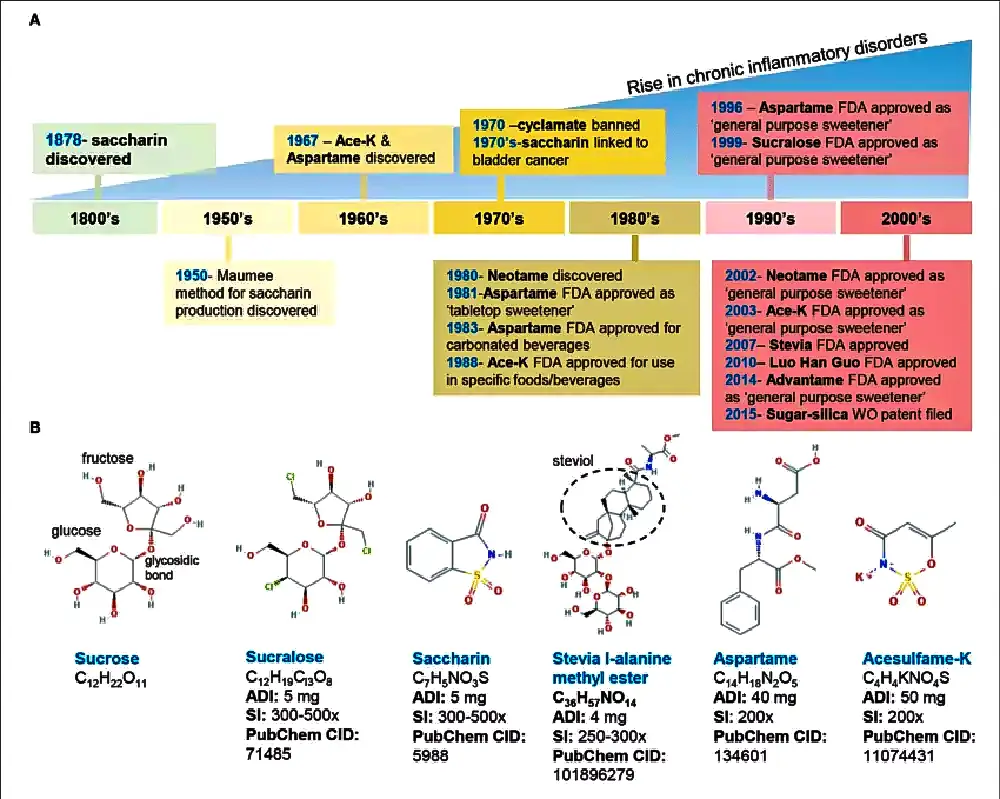
Acesulfame-K sold as a sweet one is linked with an acute headache and also links to DNA damage. It is proven to be clastogenic (mutagenic agent) and genotoxic at high doses and has caused thyroid tumors in rats.
Cyclamate sold as sugar twin was banned more than 40 years ago because of the link between bladder cancer in mice and testicular atrophy in mice. Still legal in Canada and many other countries.
Saccharin, discovered by accident while experimenting with coal tar derivate is linked to nausea, vomiting, diarrhea, cancer in offspring of breastfed animals, low birth weight, bladder cancer in people, and hepatotoxicity.
Sucralose discovered by accident while experimenting at Queen’s College in London while trying to formulate a new pesticide (e.g., Splenda) is linked to diarrhea, thymus shrinkage, and cecal enlargements in rats. It is a very strong migraine trigger.
Sugar alcohols like sorbitol and xylitol unlike erythritol are not absorbed, so they ferment in the colon and draw fluid into it and can have a laxative effect.
Ok but there are still people who want to taste something sweet but have diabetes, and for them usually, sugar substitutes are a must in the diet.
Until some new studies were done the common belief recently was that non-nutritive substitute sweeteners were healthy sugar substitutes because they provide a sweet taste without calories or glycemic effects so they can be extremely beneficial for people who have diabetes. However, results of some epidemiological research have found that consumption of artificially sweetened food, mainly in diet sodas, is associated with an increased risk to develop obesity, metabolic syndrome, and more importantly, type 2 diabetes.
The problem was that they were considered just to be chemicals that are “metabolically inactive” in the gut and that they just go truly out of the digestive system without promoting metabolic dysregulation.
I already mention that artificially sweetened food interferes with learned responses that contribute to sugar cravings and appetite control, but there is also one more thing important to everyone but especially to people with diabetes that use them the most.
Artificial sweeteners do have metabolic effects.
In this study for example (Pepino et al., 2013) when they give obese individuals the amount of sucralose found in a can of coke zero they will get significantly higher blood sugar spikes in response to a glucose challenge. How much? Twenty percent more insulin levels in the blood show that sucralose causes insulin resistance. And not just sucralose. In this study (Suez et al., 2014) they tested saccharin (Sweet’N Low), aspartame (Equal and NutraSweet), and sucralose (Splenda) and found that all of them induce glucose intolerance by disturbing the microbiome.
They alter microbes that live in our gut.
If you eat artificial sweeteners, they will alter the bacteria that grow in your gut because they are hard to absorb, so they stay in your large intestine and ferment. Acesulfame-K was also tested and correlated with changes in gut bacteria. This is also important not just to people with diabetes but to other diseases that are correlated with the digestive system like inflammatory bowel diseases like ulcerative colitis and Crohn’s disease. For example, cyclamate was not metabolized when first time injected, and gut bacteria do not know what to do with it. However, after ten days, 75% of it will get metabolized by gut bacteria into cyclohexylamine, and if you stop eating it those bacteria that metabolize it dies back. Cyclohexylamine is very toxic, and the FDA banned it in 1969 but not in Canada and many other countries.
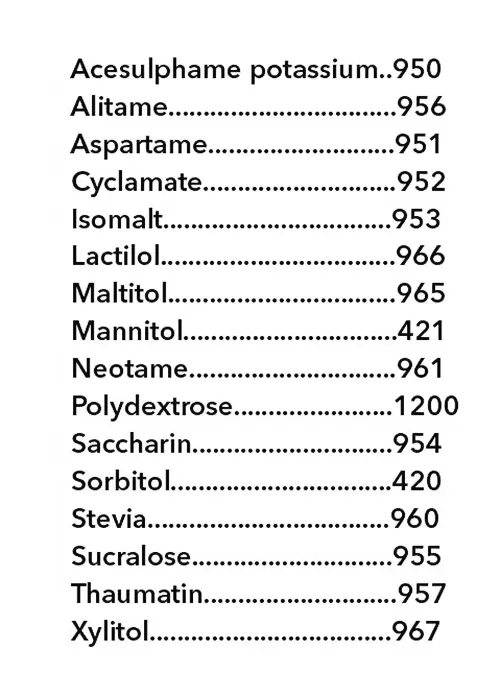
So is there any artificial sweetener that is safe?
Stevia is thought to be not that bad because there was some research initially that showed that it is totally harmless. It was later found that it can affect the microbiome in the guts of rats. It gets fermented into a substance named steviol that is mutagenic and causes DNA damage. Humans have the same gut bacteria that ferment stevia. When we eat stevia mutagenic steviol is created and absorbed into our bloodstream.
WHO considers 4mg per kg of body weight of stevia safe so you might get away with one stevia-sweetened food item a day.
So far the only nontoxic artificial sweetener may be Erythritol.
It is found naturally in grapes, pears, and melons but yeast is used in industry to make it. Because it exists in nature we have to presume that we have been eating it for millions of years so we might have some tolerance for it. It is absorbed in the intestine without fermentation and does not have a laxative effect. It seems that it does not interact with anything or have any metabolism in the bloodstream and it is excreted unchanged in the urine. It does not correlate with any disease, and it might even be helpful. It might be actually an antioxidant that is at the same time also sweet (den Hartog et al., 2010). Erythritol was shown to be an excellent free radical scavenger (antioxidant) in vivo and may help protect against hyperglycemia-induced vascular damage (diabetes).
To be safe if you have diabetes and use artificial sweeteners use Erythritol.
So far science shows that this is the best option. In the cited study it was shown that Erythritol protects the agent’s oxidative destruction of the red blood cells. Erythritol chemically in the structure looks very similar to mannitol, a well-known antioxidant. The problem with mannitol and other alcohol-derived sweeteners like sorbitol or xylitol is that they are not absorbed, unlike erythritol.
The only other sweeteners that are sweet and have antioxidant properties at the same time are fruits.
The best practice to adopt is that if you have a sugar craving just eat the whole fruit.
They are sweeteners, but they have nutrition at the same time and are healthy too. Today we live in a globalized society where most of us can find fresh fruit or frozen fruit for a whole year long. And also we can use dried fruit as well. It is a taste preference. In some cases where it can not be done for example if you want to sweeten your coffee then use erythritol.
Date sugar is the healthiest sweetener today and is not really sugar but whole dried dates pulverized into powder.
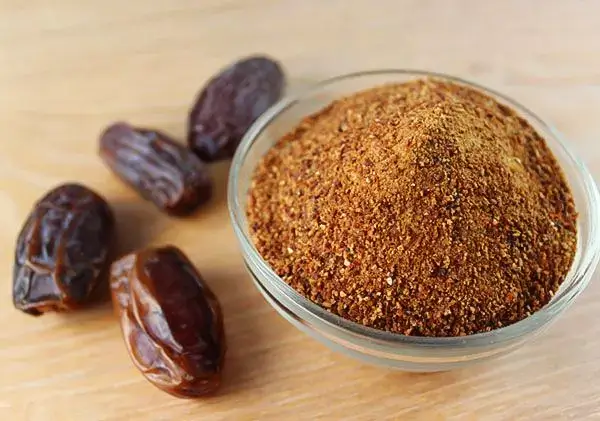
Dates are by weight 80% sugar but they are not correlated with negative effects on weight gain, and blood sugar control and actually improve antioxidant stress levels and Hallawi is better than Medjool (Rock et al., 2009).
Because dates or other dried fruit or natural fruit contains fiber it has a thickening effect. If you cannot use date sugar or another type of dried fruit for some recipe and you need refined sugar then use barley malt syrup or molasses. Molasses are in second place.

To understand why I recommend low fructose refined sugar like barley malt syrup instead of white sugar or honey you can read a related article (Refined sugar health risk correlations- Understanding the basics). If you do not want to thicken coffee or tea for example, then Erythritol can be a choice.
References:
- Mattes R. (1990). Effects of aspartame and sucrose on hunger and energy intake in humans. Physiology & behavior, 47(6), 1037–1044. https://doi.org/10.1016/0031-9384(90)90350-d
- Pepino, M. Y., Tiemann, C. D., Patterson, B. W., Wice, B. M., & Klein, S. (2013). Sucralose affects glycemic and hormonal responses to an oral glucose load. Diabetes care, 36(9), 2530–2535. https://doi.org/10.2337/dc12-2221
- Suez, J., Korem, T., Zeevi, D., Zilberman-Schapira, G., Thaiss, C. A., Maza, O., Israeli, D., Zmora, N., Gilad, S., Weinberger, A., Kuperman, Y., Harmelin, A., Kolodkin-Gal, I., Shapiro, H., Halpern, Z., Segal, E., & Elinav, E. (2014). Artificial sweeteners induce glucose intolerance by altering the gut microbiota. Nature, 514(7521), 181–186. https://doi.org/10.1038/nature13793
- den Hartog, G. J., Boots, A. W., Adam-Perrot, A., Brouns, F., Verkooijen, I. W., Weseler, A. R., Haenen, G. R., & Bast, A. (2010). Erythritol is a sweet antioxidant. Nutrition (Burbank, Los Angeles County, Calif.), 26(4), 449–458. https://doi.org/10.1016/j.nut.2009.05.004
- Rock, W., Rosenblat, M., Borochov-Neori, H., Volkova, N., Judeinstein, S., Elias, M., & Aviram, M. (2009). Effects of date ( Phoenix dactylifera L., Medjool or Hallawi Variety) consumption by healthy subjects on serum glucose and lipid levels and on serum oxidative status: a pilot study. Journal of agricultural and food chemistry, 57(17), 8010–8017. https://doi.org/10.1021/jf901559a
Related Posts
Do you have any questions about nutrition and health?
I would love to hear from you and answer them in my next post. I appreciate your input and opinion and I look forward to hearing from you soon. I also invite you to follow us on Facebook, Instagram, and Pinterest for more diet, nutrition, and health content. You can leave a comment there and connect with other health enthusiasts, share your tips and experiences, and get support and encouragement from our team and community.
I hope that this post was informative and enjoyable for you and that you are prepared to apply the insights you learned. If you found this post helpful, please share it with your friends and family who might also benefit from it. You never know who might need some guidance and support on their health journey.
– You Might Also Like –

Learn About Nutrition
Milos Pokimica is a doctor of natural medicine, clinical nutritionist, medical health and nutrition writer, and nutritional science advisor. Author of the book series Go Vegan? Review of Science, he also operates the natural health website GoVeganWay.com
Medical Disclaimer
GoVeganWay.com brings you reviews of the latest nutrition and health-related research. The information provided represents the personal opinion of the author and is not intended nor implied to be a substitute for professional medical advice, diagnosis, or treatment. The information provided is for informational purposes only and is not intended to serve as a substitute for the consultation, diagnosis, and/or medical treatment of a qualified physician or healthcare provider.NEVER DISREGARD PROFESSIONAL MEDICAL ADVICE OR DELAY SEEKING MEDICAL TREATMENT BECAUSE OF SOMETHING YOU HAVE READ ON OR ACCESSED THROUGH GoVeganWay.com
NEVER APPLY ANY LIFESTYLE CHANGES OR ANY CHANGES AT ALL AS A CONSEQUENCE OF SOMETHING YOU HAVE READ IN GoVeganWay.com BEFORE CONSULTING LICENCED MEDICAL PRACTITIONER.
In the event of a medical emergency, call a doctor or 911 immediately. GoVeganWay.com does not recommend or endorse any specific groups, organizations, tests, physicians, products, procedures, opinions, or other information that may be mentioned inside.
Editor Picks –
Milos Pokimica is a doctor of natural medicine, clinical nutritionist, medical health and nutrition writer, and nutritional science advisor. Author of the book series Go Vegan? Review of Science, he also operates the natural health website GoVeganWay.com
Latest Articles –
Plant Based News
-
5-Ingredient Vegan Bread And Butter Pudding
on July 10, 2025
-
10 Quick Vegan Weekday Breakfasts
on July 9, 2025
-
This Tempeh Parmesan Recipe Has Gone Viral For A Reason
on July 8, 2025
-
This High-Protein Vegan Kimchi Jjigae Might Be The Best Yet
on July 8, 2025
-
16 Vegan Trader Joe’s Meals You Need To Know
on July 7, 2025
-
Odeon Cinemas Just Added A Moving Mountains Vegan Hot Dog To The Menu
on July 7, 2025
-
5 Practical Travel Tips From A Vegan Explorer
on July 7, 2025
Top Health News — ScienceDaily
- Bigger crops, fewer nutrients: The hidden cost of climate changeon July 10, 2025
Climate change is silently sapping the nutrients from our food. A pioneering study finds that rising CO2 and higher temperatures are not only reshaping how crops grow but are also degrading their nutritional value—especially in vital leafy greens like kale and spinach. This shift could spell trouble for global health, particularly in communities already facing nutritional stress. Researchers warn that while crops may grow faster, they may also become less nourishing, with fewer minerals, […]
- No training needed: How humans instinctively read nature’s signalson July 10, 2025
People can intuitively sense how biodiverse a forest is just by looking at photos or listening to sounds, and their gut feelings surprisingly line up with what scientists measure.
- This muscle supplement could rewire the brain—and now scientists can deliver iton July 10, 2025
Creatine isn’t just for gym buffs; Virginia Tech scientists are using focused ultrasound to sneak this vital energy molecule past the blood-brain barrier, hoping to reverse devastating creatine transporter deficiencies. By momentarily opening microscopic gateways, they aim to revive brain growth and function without damaging healthy tissue—an approach that could fast-track from lab benches to lifesaving treatments.
- Doctors say we’ve been misled about weight and healthon July 10, 2025
Losing weight isn’t always winning at health, say experts challenging the long-standing obsession with BMI and dieting. New evidence shows that most people with higher body weight can’t sustain long-term weight loss through lifestyle changes—and the pressure to do so may actually cause harm. From disordered eating to reinforced stigma, the consequences go beyond the physical. A growing movement urges doctors to shift away from the scale and toward personalized, compassionate care that […]
- Matching your workouts to your personality could make exercising more enjoyable and give you better resultson July 9, 2025
Less than a quarter of us hit WHO activity targets, but a new UCL study suggests the trick may be matching workouts to our personalities: extroverts thrive in high-energy group sports, neurotics prefer private bursts with breaks, and everyone sees stress levels drop when they find exercise they enjoy.
- Hate exercise? Neuroscience maps the routine your personality will loveon July 8, 2025
A new UCL study reveals that aligning workouts with personality boosts fitness and slashes stress—extroverts thrive on HIIT, neurotics favor short, private bursts, and everyone benefits when enjoyment leads the way.
- Alzheimer’s doesn’t strike at random: These 4 early-warning patterns tell the storyon July 7, 2025
UCLA scientists mined millions of electronic health records and uncovered four distinct “roadways” that funnel people toward Alzheimer’s—ranging from mental-health struggles to vascular troubles. Following these breadcrumb trails proved far better at predicting who will develop dementia than single risk factors. The findings hint that spotting—and halting—specific sequences early could rewrite how we prevent the disease.
PubMed, #vegan-diet –
- Dietary acid load on the Mediterranean and a vegan diet: a secondary analysis of a randomized, cross-over trialon July 10, 2025
CONCLUSION: These findings suggest that, compared with the Mediterranean diet, dietary acid load decreased significantly on the low-fat vegan diet and was associated with weight loss. The alkalizing effect of a vegan diet may be an independent mechanism by which a vegan diet promotes weight loss.
- Framing the meat consumption transition: A statistical learning approach to explore the factors shaping young adults’ food choices in Germany and Italyon July 6, 2025
This study examines the factors driving changes in meat consumption among young adults in Germany and Italy-two high-income countries that, despite their distinct culinary traditions, have seen a convergence in meat consumption levels in recent years. The research addresses two aims: to examine the role of environmental attitudes in shaping dietary choices and to explore the impact of socio-demographic factors on meat-consumption patterns. The analysis employs the General Ecological Behavior…
- Health and environmental impacts of shifting to plant-based analogues: a risk-benefit assessmenton July 5, 2025
CONCLUSION: PBAs can be considered feasible alternatives to animal-based foods, and the results emphasise meat substitution as a crucial factor for health and environmental benefits.
- Exploring the role of gut microbiota in rheumatoid arthritis: the effects of diet and drug supplementationon July 2, 2025
Rheumatoid Arthritis (RA) is a chronic autoimmune disease that mostly breaks out at the joints. It further causes bone erosion and decreased life quality due to severe pain. Current drugs are mainly focused on reducing pain, but unable to terminate the disease progression. This study aims to determine the effect of diet types (Western, Vegan and Mediterranean) on RA progression. Some dietary supplements and drug administration (Huayu-Qiangshen-Tongbi formula or Leflunomide plus Methotrexate) […]
- Blood biomarkers of Alzheimer’s disease in Australians habitually consuming various plant-based dietson June 30, 2025
BackgroundEvidence suggests that plant-based diets (PBDs) may be protective against neurodegenerative diseases such as Alzheimer’s disease (AD).ObjectiveThis study examined associations between blood-based AD biomarkers in individuals 30-75 years without current or diagnosed cardiovascular disease following different PBDs versus regular meat-eating diets (RMEs).MethodsThis secondary analysis of the Plant-based Diets study measured Aβ(1-42)/Aβ(1-40), p-tau181, NFL, and GFAP in 237 plasma […]
Random Posts –
Featured Posts –

Latest from PubMed, #plant-based diet –
- Dietary acid load on the Mediterranean and a vegan diet: a secondary analysis of a randomized, cross-over trialby Hana Kahleova on July 10, 2025
CONCLUSION: These findings suggest that, compared with the Mediterranean diet, dietary acid load decreased significantly on the low-fat vegan diet and was associated with weight loss. The alkalizing effect of a vegan diet may be an independent mechanism by which a vegan diet promotes weight loss.
- Impact of Elateriospermum tapos Supplementation on Leptin and Hypothalamic Signaling in Female Offspring of High-Fat Diet-Induced Obeseby Santhra Segaran Balan on July 10, 2025
CONCLUSION: In conclusion, the E. tapos shell significantly reduced maternal obesity in female offspring at PND21 compared to its seed.
- Healthy Plant-Based Diet Is Associated With a Reduced Risk of Inflammatory Bowel Disease: A Large-Scale Prospective Analysisby Zhenhe Jin on July 9, 2025
Current studies indicated a potential inverse association between plant-based diets (PBD) and inflammatory bowel disease (IBD). Large-scale research is needed to confirm the protective role of PBD in IBD risk. This study evaluated the associations between PBD and IBD risk and explored potential mediators. This prospective cohort study included 143 434 UK Biobank participants, using 24-h dietary recalls to calculate PBD indexes. Cox regression assessed associations between PBD and IBD risk….
- Associations of nutritional knowledge with dietary patterns and breast cancer occurrenceby Beata Stasiewicz on July 9, 2025
It is well-established that women’s nutrition knowledge (NK) is strongly associated with children’s nutritional outcomes. However, the association of women’s NK with their own diet and health status, including cancer occurrence, remains unknown. This case-control study aimed to assess the associations of NK with dietary patterns (DPs) and breast cancer (BC) occurrence in peri- and postmenopausal women. Data were collected for 417 women aged 40.0-79.9 years from north-eastern Poland, including…
- To be climate-friendly, food-based dietary guidelines must include limits on total meat consumption – modeling from the case of Franceby Emmanuelle Kesse-Guyot on July 9, 2025
CONCLUSIONS: While French dietary guidelines contribute, on average, to mitigating climate change and promoting health, this study emphasizes levers in recommended food consumption to more efficiently reduce diets’ GHGe and points to total meat as the critical issue to better account for pressure on climate change. Other environmental pressures should also be taken into account when designing dietary guidelines.
- Acute glycaemic response of orange juice consumption with breakfast in individuals with type 2 diabetes: a randomized cross-over trialby Kenneth Verboven on July 8, 2025
CONCLUSION: Acute glycaemic control in individuals with well-controlled T2DM is not significantly influenced by serving orange juice, whole orange pieces or a sugar-sweetened beverage with a standard high-carbohydrate meal.
